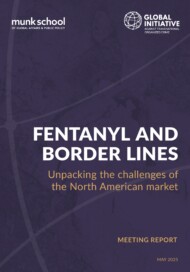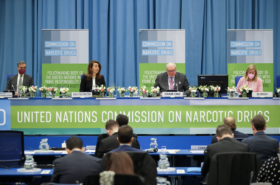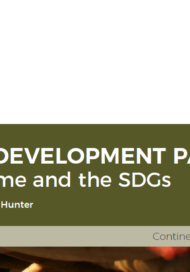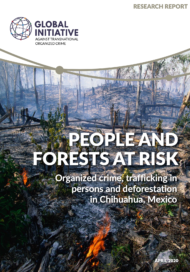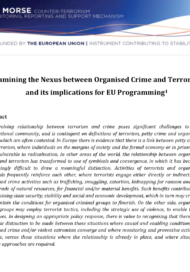Posted on 22 May 2025
The synthetic opioid crisis has reshaped the landscape of organized crime, public health, and security across North America. Drawing on the expert dialogue held in April 2025, this report explores cross-border dynamics, policy gaps, and recommendations to strengthen regional responses. It presents a timely and evidence-based overview of the evolving fentanyl market in Canada, the United States, and Mexico.
Fentanyl is not just a North American issue – it is part of a global shift in synthetic drug production. The report challenges traditional framing, highlighting how fentanyl is produced and consumed domestically within all three countries, often through integrated and illicitly adapted supply chains. These networks mimic legitimate logistics operations, exploiting regulatory and enforcement blind spots.
Key insights reveal that unregulated fentanyl rarely appears in pure form. In Toronto, drug-checking services found high levels of contamination, with over 70% of samples containing veterinary tranquilizers and nearly 20% containing nitazenes. This repositions fentanyl not as an adulterant, but as a substance being contaminated – adding further urgency to harm-reduction strategies.
The event report underscores the importance of trilateral cooperation. Participants recommended establishing an international contact group and a regional fentanyl observatory to generate strategic intelligence. Public–private partnerships and better monitoring of precursor chemicals were also identified as critical steps forward.
Financial systems are another key focus. Criminal networks exploit fragmented anti-money-laundering (AML) frameworks and the lack of coordinated oversight. Expert insights revealed the increasing use of cryptocurrencies, trade-based laundering, and shell companies to facilitate illicit flows, highlighting the need for modernized and risk-based financial supervision.
Canada, in particular, was seen as having the opportunity to assume a leadership role by embedding fentanyl responses within a broader national strategy. Suggested actions include appointing a national fentanyl czar, enhancing forensic financial capacity, supporting community-based drug checking services, and investing in safe consumption initiatives.
Ultimately, the event report emphasizes the need to move beyond short-term, tactical gains. Success should be measured not only in reduced mortality but also in resilient communities, disrupted supply chains, and shrinking profit margins for criminal markets.
